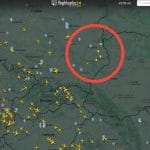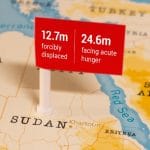The parliamentary elections in Hungary, scheduled for April 2026, are increasingly viewed by experts as potentially the most challenging for Viktor Orbán during his long political career. For over ten years, the Fidesz party has held power through extensive networks of influence, economic connections, and a centralized style of governance. However, recent polls and domestic political developments indicate that this election may be less predictable than those in previous years.
In case of a change in government, some analysts suggest that a new administration could seek to review a range of decisions and practices that have shaped the Hungarian political system since the early 2010s. Against this backdrop, observers are increasingly speculating about the possible moves of the current prime minister should the election result prove unfavourable. Orbán himself has not commented on such speculation, but certain developments in his immediate circle are interpreted as potential elements of a broader strategy.
One such development was the relocation at the end of August 2025 of the prime minister’s daughter, Ráhel Orbán, along with her husband, István Tiborcz, and their children, to the United States. On social media, Ráhel described studying in the U.S. as a long-held dream and mentioned that she had undertaken a summer course at Boston University. However, much of the commentary in the European media focused on the timing of this move, which came just months before the elections. The relocation of the Orbán family alone does not provide grounds for definitive conclusions but has become another element in the broader discourse on the prime minister’s potential trajectories.
Equally noteworthy are the long-standing, seemingly cordial relations between Viktor Orbán and U.S. President Donald Trump. Trump has repeatedly called the Hungarian leader a “great leader,” and bilateral contacts between Budapest and Washington have been markedly intensified during Trump’s tenure. Some analysts see this as a potential avenue for Orbán to seek temporary refuge or operational space in the U.S. should there be political upheaval in Budapest. However, such assessments remain speculative and are not supported by verified evidence.
African dimension of Hungarian foreign policy
Alongside this potential American shift, Hungary’s foreign policy has also taken on an African dimension, which has grown increasingly active since 2022. Budapest has significantly enhanced cooperation with Chad – a Sahelian country facing security threats and political instability. Hungary has signed a series of agreements with Chad, the details of which have not always been fully transparent, including arrangements in the defense sector. This rapprochement culminated in a 2023 decision by the Hungarian parliament to deploy a contingent of 200 troops to the Sahel region, followed by the official establishment of a “strategic partnership” with Chad in 2024.
At the centre of this cooperation is the prime minister’s son, Gáspár Orbán, who, according to multiple reports, regularly visits Chad and maintains direct contact with its leadership. Officially, Hungary’s presence in the Sahel is explained as part of counter-terrorism efforts and regional stabilization. However, within expert circles, alternative hypotheses have emerged: that this presence may also create space for private initiatives or act as a form of insurance for the Hungarian leadership. Certain sources have even mentioned the construction of a private residence near the deployment of Hungarian troops, although these claims have not been officially confirmed.
Chad, considering its political structure and opaque financial system, is sometimes seen as a country where assets can be more easily shielded or projects carried out without strict European oversight. Whether this cooperation is directly linked to Viktor Orbán’s personal plans remains an open question, but the African aspect has become an essential part of the broader picture of Hungary’s potential political and strategic directions.
In summary, in the run-up to the 2026 elections, Budapest displays a complex and multi-faceted behavior – from increased foreign policy activity to noticeable changes within the prime minister’s family circle. Whether these developments suggest Orbán’s preparation for a new political landscape or are simply parts of broader transnational networks remains a matter for debate. Nonetheless, these trends show that even in countries with long-standing political leaders, the future can still be unpredictable, and strategic planning becomes increasingly vital.







